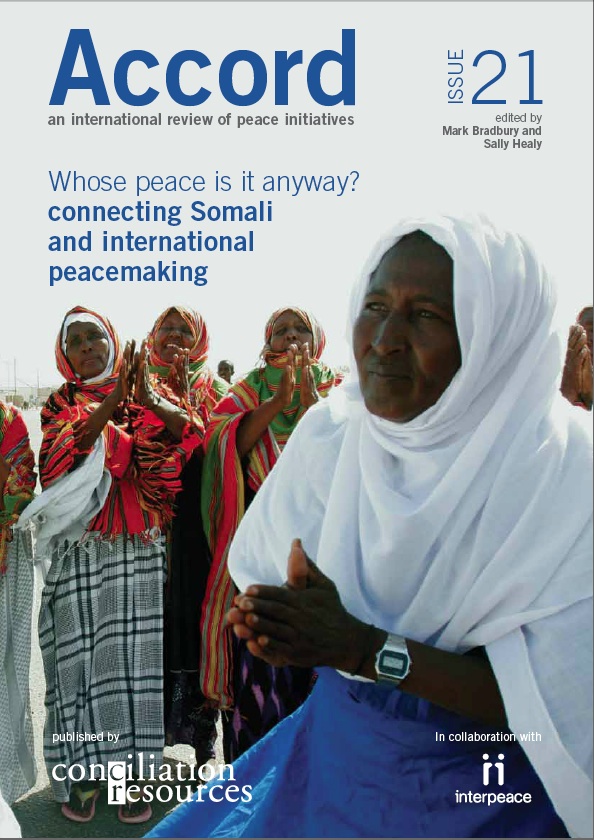The CRC decided that a systematic revision of the provisional constitution was needed. With the help of an advisory team, the first draft of the revised constitution was completed by November 2008. The next phase was to involve consultations with wider society and by January 2009 plans for public dissemination and formal consultative meetings were ready.
The dissemination of a radio education programme on the constitution generated a great deal of public discussion in Puntland, resulting in many of the key constitutional articles becoming ‘buzz words’. Consultation meetings were held throughout February 2008 in Garowe, the Puntland capital, with a broad spectrum of organisations, prominent personalities, and a cross-section of representatives from the different sectors and geographical regions of Puntland. These ranged from governors, mayors, and officials from ministries, to civil society groups and religious and traditional leaders.
Public responses reflected the concerns of participants’ interests. These included calls from local authorities for increased autonomy from central government, demands for women’s rights by women’s organisations, calls for freedom of expression from journalists, and for a bi-cameral legislature by traditional leaders.
The CRC incorporated the inputs from the consultative phase into the final draft constitution. It also added a number of last-minute changes unrelated to the consultations, such as removing the conditions under which the president can introduce a state of emergency, which presented serious contradictions with the principles of a democratic constitution.
The CRC forwarded the final draft to the Puntland cabinet for review at a special session on 2 June 2008. Ignoring technical advice about a number of contradictory articles, the cabinet delivered the draft revised constitution to parliament for its approval prior to preparations for a popular referendum.
By now however the mandate of parliament and the government was about to expire. In order to dispel speculation that parliamentary approval of the revised constitution would be used as leverage for the extension of their mandate, parliament voted to defer the proposal to the next parliamentary session.
A peaceful political transition was achieved in Puntland in late 2008. A new parliament was sworn in on 31 December 2008, a new president was chosen by the parliament on 8 January 2009 and a new State Minister of the President for the Democratisation Process was appointed in the government.
The new administration envisages that transition to a democratic multi-party system will be completed by the end of its first two-year period of office in early 2011. It asked parliament to return the draft constitution to the cabinet so it could familiarise itself with the content. This resulted in more changes that introduced new contradictions into the text. Some address observations made by Interpeace, others are oriented towards limiting the independence of the judiciary and increasing the power of the executive.
The president called for an extraordinary session of parliament in April 2009 to discuss, among other things, the draft constitution for referendum. Parliament spent the whole of May discussing the draft and making further revisions to the text, but some contradictions remained. In late June 2009 the new constitution of the Puntland State of Somalia was approved by a vote of 49 in favour, 2 against and 3 abstentions (with 12 MPs absent).
Subsequently there has been a call from civil society organisations and prominent personalities for a final review to correct the most serious contradictions and defects in the text approved by parliament. At the time of writing the executive had not yet signed off on the version approved by parliament or made it public. Nor had it expressed an official position on how to resolve existing problems with the text.

